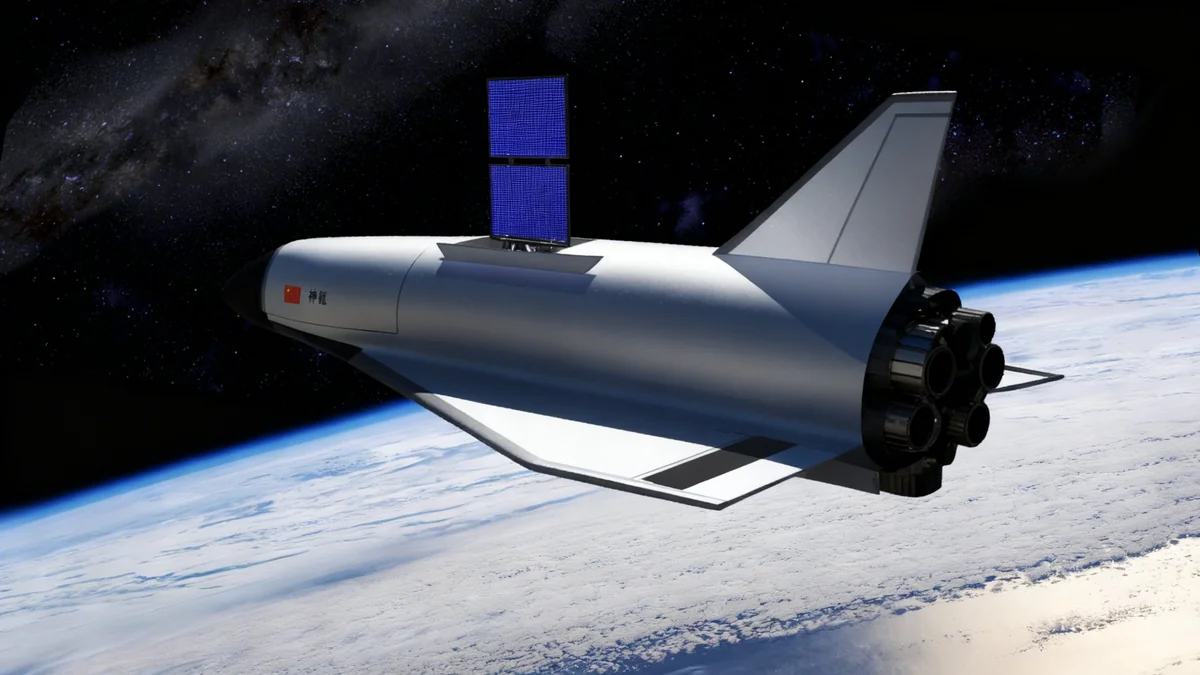Dark, a French startup focused on space and defense technology, has announced it is ceasing all operations. The company, which had raised $11 million and secured government contracts, was developing an air-launched spacecraft designed to intercept and remove other satellites from orbit.
In a public statement on October 8, 2025, the team explained that the decision was made due to the lack of a stable foundation for commercialization within France's defense sector, a challenge that left the company's business model too reliant on a single customer.
Key Takeaways
- French space defense startup Dark has ceased operations.
- The company had raised $11 million and held contracts with the French government.
- Dark cited the lack of foundational support for privatization in the French defense sector as the primary reason for closure.
- The company's intellectual property will remain under French control.
- The closure occurs despite France's stated plans to increase spending on space defense capabilities.
Ambitious Goals in Orbital Defense
Dark was founded with a specific and advanced mission: to develop a rapid-response, air-launched system for space defense. The core of its technology was an interceptor spacecraft capable of launching from an aircraft, reaching orbit, and physically capturing another spacecraft.
This capability, often referred to as in-orbit servicing or a counter-space system, was designed to de-orbit non-cooperative or hostile satellites. Such technology is considered critical for national security in an era of increasing orbital congestion and strategic competition in space.
The company had successfully moved from concept to prototype, completing significant system engineering work. It had also secured development contracts, including a study agreement with the French Defense Innovation Agency, signaling initial government interest in its technology.
Reasons for the Shutdown
Despite its technical progress and early funding, the startup faced significant hurdles in establishing a viable long-term business. In its farewell announcement, the Dark team detailed the challenges of operating as a private defense company in France.
"Our ambition was to anchor a private capability that would both strengthen national security and generate economic and diplomatic value through export. Yet, while later entrants abroad, directly backed by their nations, secured their anchoring and took the lead globally, the foundation necessary for such privatization never materialized for us in France," the team stated.
The company explained that without this firm government commitment, which it referred to as "anchoring," its business model was unsustainable. The primary risk was becoming entirely dependent on a single government customer.
"Continuing without this anchoring would have meant reshaping DARK into a fragile model dependent on a single customer," the statement added. This dependency would have limited the company's ability to grow, export its technology, and compete on a global scale.
What is 'Anchoring' in Defense Startups?
In the defense industry, 'anchoring' typically refers to a strong, long-term commitment from a national government to a private company. This often takes the form of being a foundational or 'anchor' customer, providing stable revenue through large, multi-year contracts. This support gives the startup the stability needed to invest in research, scale production, and pursue international sales, making it competitive against state-backed foreign companies.
Financial Standing and Government Involvement
The closure of Dark is notable given its initial successes. The company had successfully raised $11 million in capital, a significant amount for a European defense startup. This funding allowed it to develop its core technology and build a specialized team.
Furthermore, Dark had established a working relationship with the French government. Its contracts with entities like the French Defense Innovation Agency suggested that its work was aligned with the nation's strategic interests. These agreements provided not only funding but also validation of its technical approach.
France's Space Defense Strategy
France has been actively increasing its focus on space as a domain of strategic competition. In recent years, the government has announced plans to ramp up defense spending, with space capabilities being a key area of investment. This includes developing technologies for space situational awareness, satellite protection, and offensive and defensive space operations.
However, the startup's experience suggests a potential disconnect between high-level strategic goals and the practical implementation of supporting a private industrial base. While the government expressed interest through study contracts, this did not translate into the long-term procurement commitments Dark felt were necessary for survival.
The Future of Dark's Technology and Team
Even as it closes, Dark has ensured its technological developments will not be lost. The company confirmed that its intellectual property will remain French. This is a critical detail, as it prevents sensitive defense technology from being acquired by foreign entities.
The expertise developed by the Dark team in system engineering and prototyping for space defense also represents a valuable national asset. The engineers, scientists, and strategists behind the project now possess rare skills in a highly specialized field.
In its final message, the team expressed hope that France and Europe would eventually succeed in developing these crucial capabilities.
"Our conviction endures: France and Europe must build uncompromised capabilities shaped by tomorrow’s strategic realities, and foster category-defining players to lead worldwide," the team concluded.
The story of Dark serves as a case study on the challenges facing private innovation within the European defense and space sectors. It highlights the complex relationship between startups seeking commercial viability and governments that control market access through national security procurement.





